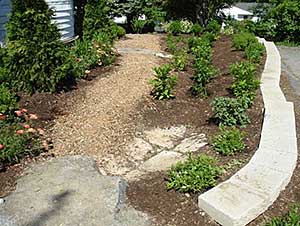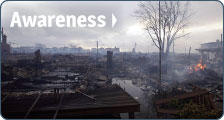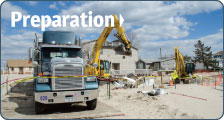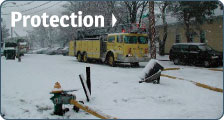
Photo Credit: RI Department of Environmental Management, Office of Emergency Response
When Clark Kent Can’t Find A Phone Booth
We pay our taxes and expect municipal, state and federal services to flow our way. Same with the cable bill. If cable service crashes during the final episode of a hot show like Breaking Bad or the Super Bowl, there will be hell to pay. We expect the same quid pro quo with policemen, firemen, and the military. Our taxes equal their duty.
Yet we do lots of things that put us at risk and expect the first responders to show up and save us from our own foolhardy actions.
Consider that guy who climbs on the seawall during a raging nor’easter. Who has to fish him out by risking their own lives? Then there are the people who refuse to evacuate in the last hours before a hurricane. Police try to root them out but often get increased personal risk spiced up by critical lip from the Independent Man in return. Well, hurricanes aren’t — in Rhode Islander-speak —a lively experiment and any extreme weather puts extraordinary demands on first responders. These are not cartoon superheroes but men and women who often are called upon to put our safety above the needs of their own families.
We all too infrequently think of their sacrifice or their welfare. Consider how many of us ensure that we have essential medications on hand should our roads or bridges become impassable as many did during the Floods of 2010. Without needed prescriptions, manageable conditions can become life-threatening emergencies. There go financial and human resources that could have served others in less preventable danger, but just as important to their own lives.
And then there are things like cutting down trees or trimming branches close to your home. Yes, such arboreal attention costs money but far less than an old oak crashing into your living room when hurricane force winds combined with saturated ground rip those roots free.
A great deal of development has come at the cost of filling in streams or wetlands. Such natural features leave their mark in the type of soil or the movement patterns of groundwater. Become aware of the geographical history of your land and neighborhood so you can remediate poor decisions with what can be delightful solutions such as “daylighting” streams or planting rain gardens to suck up extreme precipitation. If you live on River Street, take it as a hint that there is or was a river nearby. It is well worth having an expert examine the runoff patterns around your home and neighborhood so as to divert — where possible and affordable — Mother Nature’s skillfully designed watery pathways from flowing right into your basement.
Many municipalities are providing expertise or incentives for residents who are willing to join the preparation party. From town engineers to your state university’s cooperative extension, there are plenty of knowledgeable folks ready to provide advice. Your job is to take it, thereby lessening the number of emergencies confronting first responders, not to mention the cost to you and your municipality.
And on the matter of affordability, be sure to think long-term about the cost of damage, displacement, rebuilding and the increased cost of flood insurance. Burying our heads in the drainage ditches is not a viable strategy.
There are numerous online resources that can tell you if you live in a floodplain — and most of us do — and whether your location carries a mild to high risk of flooding. The Federal Emergency Management Agency has loads of information to determine your level of risk, how to address it and what to do about flood insurance. Between government and non-governmental agencies (NGOs), e.g., the Red Cross, there is plenty of help to increase your awareness, guide your preparation and lessen your need for emergency protection.
As you’ll see in the many resources listed, attention is being paid to the particular and intensified challenges we face due to climate change. The strategic teams of government and NGOs may “have our six,” but we all need to give our collective cavalry of Clark Kents a break. Dollars are scarce and demands are many. The more we do to prepare for extreme weather and the added threat of sea level rise — our prime concerns in Southern New England, but not our only ones - the more the efforts being made our behalf have a chance to lower the disastrous impact of any hazard. Let’s take action so we don’t become Kryptonite to those dedicated to serve and protect.
As the old saying goes, you don’t tug on Superman’s cape.
The value of government to the people it serves is in direct relationship to the interest citizens themselves display in the affairs of state.
- William Scranton
Knowledge will forever govern ignorance; and a people who mean to be their own governors must arm themselves with the power which knowledge gives.
- James Madison
News
Factoids
A massive fire during Superstorm Sandy destroyed 120 homes. The fire stared because the power companies failed to switch off the electricity, which is a common practice in extreme situations.
Rhode Island recognizes that it needs to prepare for sea level rise and is taking future predictions into consideration when updating building codes. This will protect property and reduce damage in the future.
The Rhode Island Emergency Management Agency administers 12 different grant programs. These funds help improve emergency management performance, increase communications during an emergency, and modernize maps that assist in emergency response.








